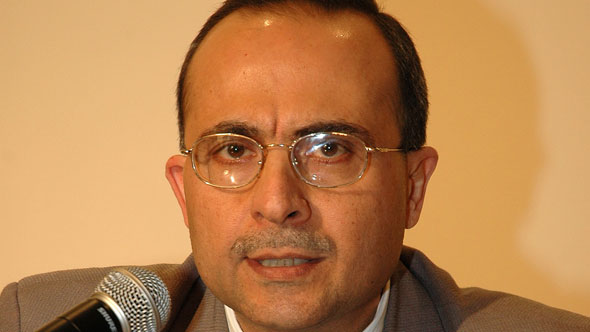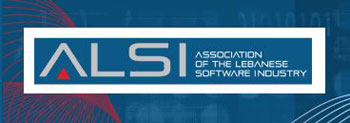Lebanese Software Companies | Software from Lebanon
Mr. Hitti from ALSI claims that Lebanon is continuously receiving requests from the European market because they do believe that Lebanese software companies are leaders in this field, particularly in the development of software programs and mobile applications.
Interview with Dal Hitti, General Manager of ALSI – Association of the Lebanese Software Industry

What is the significance of the Lebanese ICT sector in the global economy?
The ICT sector including hardware, software, digital, security, media, consultancy, innovations, mobile applications, is a major player in the Lebanese economy. The sector has been fighting over the last 10 years to reach the point where it is now. It represents 15-18% of the global market, as opposed to 5-6% before.
We have been exporting software programs and mobile applications all over the world. We export to Africa, Europe, the Middle East (UAE, Saudi Arabia, Bahrain, Qatar, Iraq, Syria, Jordan, Egypt, and to Iran, too).
As software houses, we have 106 companies in Lebanon. The entire ICT sector in Lebanon has more than 500 companies. Most of them are SME’s. Of course, if one person creates a successful application for mobile phones, he is registered as a company. But there are also very large companies. We have four incubators (a platform that supports start-up companies) in Beirut, Mkalles, Tripoli and Saida. These incubators have supported since their creation, ten years ago, more then 250 entities, shared between companies and individual creators.
What are the biggest companies in IT?
In Lebanon, we don’t have accurate statistics which allow us to put companies in a rank of volume.
How fast is the ICT sector in Lebanon growing?
Around 20% per year. The entire sector has more than 15,000 employees and we have big demand on software developers.
What are Lebanon’s strengths internationally?
We are continuously receiving requests from the French market, the German market, the European market in general, because they do believe that Lebanese are leaders in this field, especially when it comes to software programs and mobile applications development.
Our software programs are being implemented all over the world. In ALSI we have a cluster of companies that work together on tasks requested by governments and private sectors according to international demands. Some projects require 200 engineers. There is no Lebanese company that can complete such a project on its own. For such, we distribute tasks between different companies to work together on the project. It’s a very good system.
The biggest software producer in the world right now is India. But we have advantages over India, for example the small time difference between Lebanon and Europe or Africa. Also, Lebanon is a trilingual country, most of the Lebanese people speaks Arabic, English and French; this is excellent for communication. It is well-known also that Lebanese people don’t just execute tasks, but they take initiatives and they innovate. We are continuously receiving requests from the French market, the German market, the European market in general, because they do believe that we are leaders in this field, especially when it comes to software programs and mobile applications development.
What is the situation in terms of regulation?
Many Lebanese regulations need to be updated due to the continuous progress in ICT field. We are having some challenges with the Lebanese government concerning the export taxes and the high cost of internet connectivity. Also, we have what is called the e-transaction Law committee that was meant to be in charge of the e-financial, e-legal and e-workflow systems (e-signature for example), but still has not been established, which impedes e-transactions. We are fighting to get it up and running by 2012-13.
We are also facing some challenges when it comes to seeking loans from banks, because in the software field it is hard to estimate the needs and prospects of a project.
We have held numerous conferences about intellectual property. There is a special department for intellectual property in the Ministry of Economy; however we still face a huge problem of piracy in the software sector. The judges do not know enough about the sector, they are outsiders, and therefore it is hard to get legal results. This problem probably is not limited to Lebanon. We are trying to let the government take it more seriously.